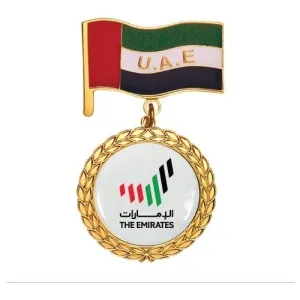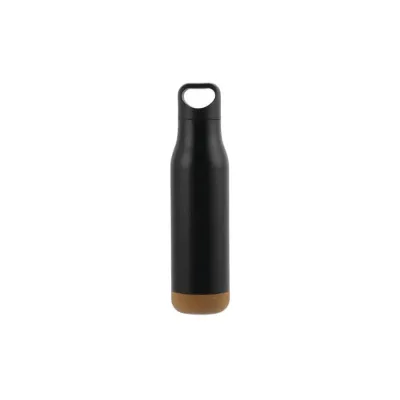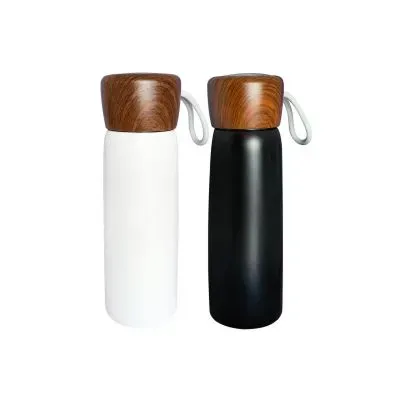Dos and Don'ts of Corporate Gifting in the Middle East | Building Relationships Right
Building Relationships Right: Dos and Don'ts of Corporate Gifting in the Middle East
Corporate gifting in the Middle East is not merely an exchange of presents but a gesture deeply rooted in cultural traditions and business etiquette. To navigate this practice successfully and build lasting relationships, it's crucial to understand the dos and don'ts of corporate gifting in the region. This essay explores essential guidelines for effective corporate gifting in the Middle East, ensuring that gifts are well-received and contribute to positive business relationships.
Dos of Corporate Gifting in the Middle East
Do Respect Cultural Traditions: Understanding the cultural context is paramount. Respect religious and social customs, such as avoiding gifts made of pork or alcohol, which are prohibited in Islam.
Do Prioritize Quality: Quality matters more than quantity. Invest in high-quality gifts that reflect the recipient's status and importance, demonstrating your commitment to the relationship.
Do Personalize Gifts: Personalization adds a thoughtful touch. Consider engraving the recipient's name or including a handwritten note to convey sincerity and appreciation.
Do Give Thoughtfully: Tailor gifts to the recipient's interests and preferences. Consider their cultural background, hobbies, or business needs when selecting gifts to ensure they are meaningful and well-received.
. Do Present Gifts with Humility: Approach gift-giving with humility and grace. Present gifts with both hands and express gratitude for the recipient's time and partnership.
Don'ts of Corporate Gifting in the Middle East:
Don't Give Inappropriate Gifts: Avoid gifts that may be considered offensive or inappropriate. Steer clear of items with political connotations, overly extravagant gifts, or anything that may be perceived as a bribe.
Don't Forget About Timing: Timing is crucial. Avoid presenting gifts during religious holidays or significant events unless they are specifically related to the occasion. Respect cultural sensitivities and be mindful of the appropriate timing for gift-giving.
Don't Overlook Reciprocity: Corporate gifting in the Middle East is often reciprocal. Be prepared to receive gifts in return, and reciprocate with a thoughtful gesture of your own to maintain harmony and balance in the relationship.
Don't Underestimate the Value of Packaging: Presentation matters. Invest in elegant and tasteful packaging that reflects the quality and significance of the gift. Pay attention to details such as wrapping paper, ribbons, and presentation boxes to create a memorable impression.
Don't Undermine Cultural Etiquette: Cultural etiquette is essential. Avoid using the left hand for giving or receiving gifts, as it is considered disrespectful in Middle Eastern culture. Take the time to familiarize yourself with local customs and observe proper etiquette when engaging in gift-giving interactions.
Navigating corporate gifting in the Middle East demands a nuanced understanding of cultural nuances and traditions. Respect for these customs is paramount, emphasizing the importance of presenting gifts that align with Islamic principles, such as abstaining from alcohol or pork-related items. Quality is prized over quantity, highlighting the significance of investing in high-quality gifts that reflect the recipient's status and significance. Moreover, personalization adds a thoughtful touch, demonstrating sincerity and appreciation through engraved names or handwritten notes tailored to the recipient's interests and preferences.
Timing and reciprocity are critical aspects of successful corporate gifting in the Middle East. Careful consideration of timing ensures that gifts are presented at appropriate moments, avoiding religious holidays or significant events unless directly related. Additionally, understanding the culture of reciprocity underscores the necessity of being prepared to receive gifts in return and reciprocate with thoughtful gestures. Packaging plays a pivotal role in gift-giving, with elegant presentation enhancing the perceived value and significance of the gift. Attention to detail in packaging, such as using tasteful wrapping paper and presentation boxes, contributes to creating a memorable impression and reinforces the sincerity of the gesture.
While navigating corporate gifting in the Middle East, adherence to cultural etiquette is essential for fostering positive relationships. Presenting gifts with humility, using both hands, and expressing gratitude underscores respect for cultural norms. Furthermore, avoiding inappropriate gifts, such as those with political connotations or perceived as bribes, preserves the integrity of the relationship. Observing cultural etiquette extends to gestures like using the right hand for giving and receiving gifts, symbolizing respect and courtesy. By incorporating these principles into corporate gifting practices, businesses can build enduring relationships rooted in trust, respect, and appreciation within the Middle Eastern market.
Conclusion:
Corporate gifting in the Middle East is a delicate art that requires understanding, thoughtfulness, and respect for cultural traditions. By following the dos and don'ts outlined in this essay, businesses can navigate the complexities of corporate gifting in the region with confidence, building strong and mutually beneficial relationships based on trust, respect, and appreciation. By prioritizing quality, personalization, and cultural sensitivity, businesses can ensure that their gifts are well-received and contribute to long-term success in the Middle Eastern market.
Spotlight on Trending Promo Gear
Browse the most popular and trending Corporate Gifts




















